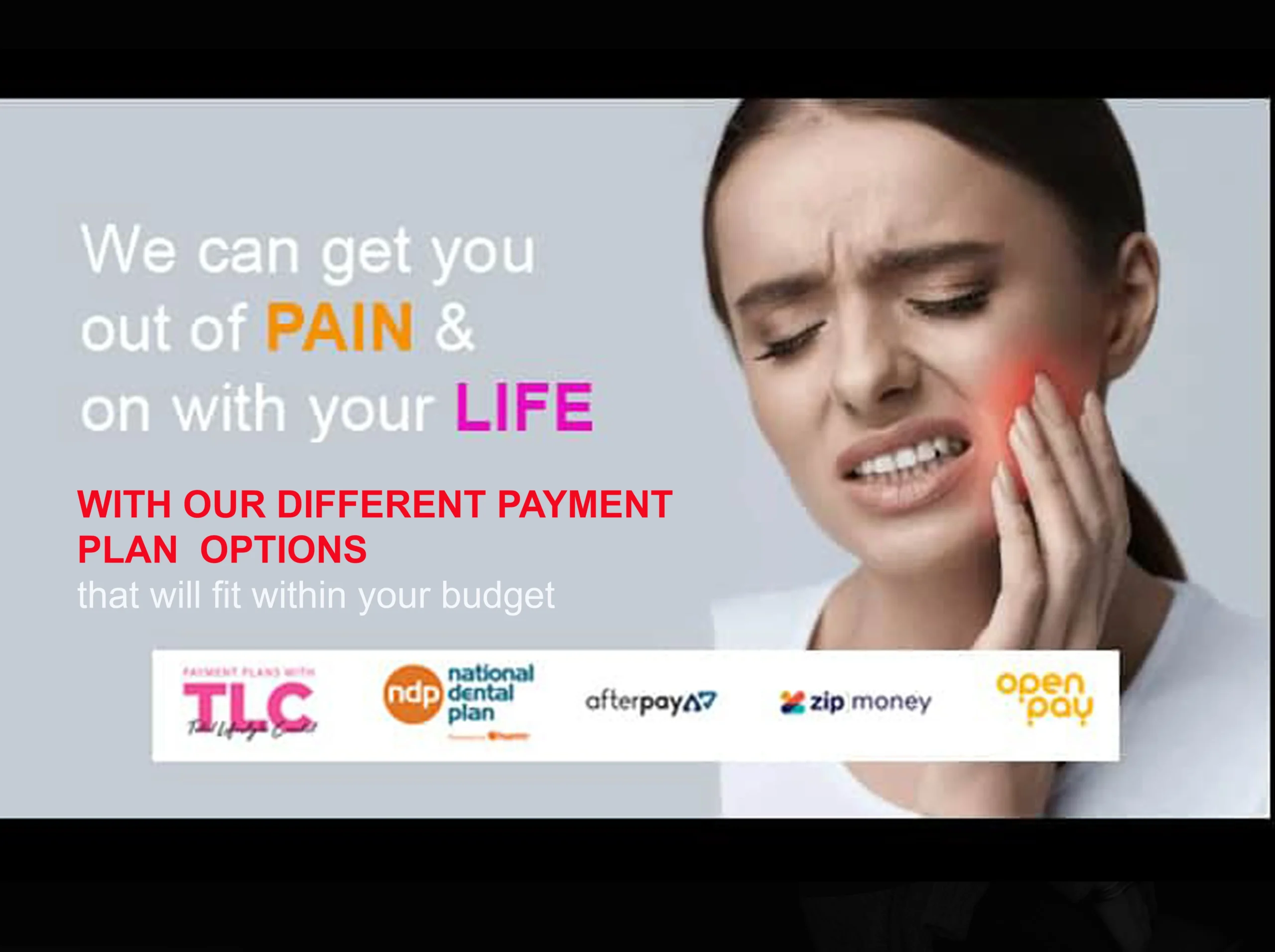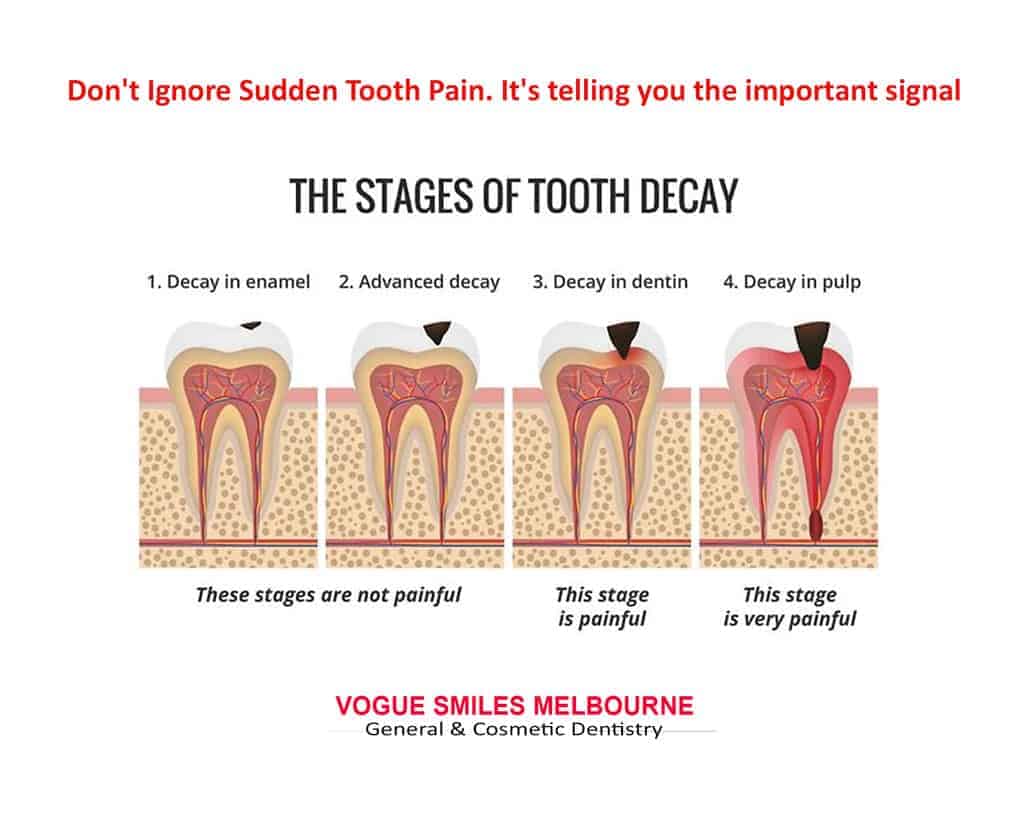

✅ Emergency tooth pain relief methods that work within minutes
✅ Natural home remedies available in your kitchen right now
✅ When nighttime tooth pain signals a dental emergency
✅ Over-the-counter medications that provide fastest relief
✅ Professional dental treatments available in Melbourne CBD & Noble Park North
✅ Prevention strategies to avoid future nighttime dental emergencies
✅ Cost-effective solutions for immediate and long-term dental care
✅ How to differentiate between tooth sensitivity and serious infection
✅ Emergency contact information for after-hours dental care
✅ Travel-friendly pain relief options for dental emergencies
✅ Understanding when antibiotics are necessary for tooth infections
✅ Signs that indicate you need immediate professional attention
✅ How sinus infections can mimic tooth pain symptoms
✅ Proper application techniques for topical pain relief
✅ Why tooth pain often worsens at night and how to manage it
✅ Safe pain management options for pregnant women and children
✅ How to create an emergency dental care kit for your home
✅ Insurance coverage options for emergency dental treatments
✅ Long-term consequences of ignoring persistent tooth pain
✅ Modern dental technologies that make treatment more comfortable\
TOOTH PAIN AT NIGHT? QUICK RELIEF TIPS THAT REALLY WORK
Nothing is hurting, so you don’t need to go to the dentist, right? Going to the dentist might not be your favorite thing in the world, but it is extremely important. It can be easy to make up excuses, whether it is out of fear, cost, or just a bit of laziness, and you might skip appointments by telling yourself that you’ll go when a problem presents itself. However, that is a dangerous approach to your health.
By the time a problem occurs, it might have become more serious, while other problems may have been lurking out of sight. The truth is that avoiding regular appointments often results in more problems, more time in the dentist’s chair, and more money out of your pocket. Regular dental checkups are not just about cleaning your teeth – they’re about preventing small issues from becoming painful, expensive emergencies that strike at the worst possible times, like the middle of the night.
When you save money by skipping routine dental visits, you’re essentially gambling with your oral health. What seems like a smart financial decision today often leads to emergency dental visits, root canals, extractions, and extensive treatments that cost ten times more than preventive care. The importance of going to the dentist regularly for periodic checks cannot be overstated – it’s an investment in your comfort, health, and financial well-being.
What to Do When a Toothache Suddenly Strikes
When tooth pain at night hits without warning, your first instinct might be panic. The throbbing, sharp, or constant ache can make it impossible to sleep, eat, or concentrate on anything else. Understanding what to do in these moments can mean the difference between hours of agony and finding relief until you can see a professional.
The fastest way to relief of toothache at night starts with immediate action. Don’t wait for the pain to get worse – address it as soon as you notice the first signs of discomfort. Many people make the mistake of hoping the pain will go away on its own, but dental pain rarely resolves without proper treatment.
- • Assess the severity: Is this a dull ache or sharp, shooting pain? Sharp pain often indicates nerve involvement or infection.
- • Check for swelling: Facial swelling accompanying tooth pain can signal a serious infection requiring immediate attention.
- • Note the triggers: Does the pain worsen with hot, cold, or sweet foods? This information helps determine the underlying cause.
- • Document the timing: When did the pain start? How long has it been bothering you? Is it constant or intermittent?
For residents in Melbourne CBD & Noble Park North, keeping a record of these symptoms helps dental professionals provide more targeted treatment when you’re able to schedule an appointment. However, when pain strikes at night, you need immediate solutions that work.

How to Stop Tooth Pain Fast at Home (Before Seeing a Dentist)
When you’re dealing with tooth pain at night and professional help isn’t immediately available, several home remedies can provide significant relief. These methods work by reducing inflammation, numbing the area, or addressing the underlying cause of the pain.
Cold Compress Application:
- • Apply a cold compress to the outside of your cheek for 15-20 minutes
- • Use a bag of frozen peas wrapped in a thin towel if you don’t have an ice pack
- • Repeat every 2-3 hours as needed
- • Cold helps reduce swelling and numbs the pain temporarily
Salt Water Rinse:
- • Mix half a teaspoon of salt in a cup of warm water
- • Swish gently around the affected area for 30 seconds
- • Spit out – don’t swallow the solution
- • Repeat 3-4 times daily
- • Salt water reduces bacteria and inflammation naturally
Clove Oil Treatment:
- • Dab a small amount of clove oil on a cotton ball
- • Apply directly to the affected tooth
- • Clove oil contains eugenol, a natural anesthetic
- • Be careful not to use too much – it can burn sensitive tissues
Elevation Technique:
- • Keep your head elevated when lying down
- • Use extra pillows to prop yourself up
- • This reduces blood flow to the affected area
- • Many people find tooth pain at night worsens when lying flat
Toothache and Swollen Face: Is It an Emergency?
When tooth pain at night is accompanied by facial swelling, you’re likely dealing with a dental abscess or serious infection. This combination of symptoms should never be ignored, as the infection can spread to other parts of your body if left untreated.
Signs that indicate a dental emergency:
- • Severe, constant throbbing pain that doesn’t respond to over-the-counter medications
- • Visible swelling in your face, cheek, or neck
- • Fever accompanying the tooth pain
- • Difficulty swallowing or breathing
- • Foul taste in your mouth from pus drainage
- • Swollen lymph nodes under your jaw or in your neck
If you experience any of these symptoms, don’t wait until morning. Contact an emergency dentist immediately or visit the nearest hospital emergency room. In Melbourne CBD & Noble Park North, several dental practices offer after-hours emergency services for situations exactly like this.
The fastest way to relief of toothache at night when infection is present often requires professional intervention. Antibiotics may be necessary to control the infection, and the source of the infection (usually a severely decayed or damaged tooth) needs immediate attention.
The Most Common Causes of Sudden Tooth Pain
Understanding why tooth pain at night occurs can help you take appropriate action and prevent future episodes. Sudden tooth pain rarely appears without an underlying cause, and identifying that cause is crucial for effective treatment.
Dental Decay (Cavities):
- • The most common cause of tooth pain
- • Bacteria eat away at tooth enamel, creating holes
- • Pain worsens when decay reaches the tooth’s nerve
- • Often triggered by sweet, hot, or cold foods
- • Can develop gradually or cause sudden severe pain
Cracked or Fractured Teeth:
- • Can result from biting hard objects, grinding teeth, or trauma
- • Pain may come and go, making diagnosis difficult
- • Often worse when biting down or releasing pressure
- • Temperature changes can trigger sharp pain
- • May not be visible to the naked eye
Gum Disease and Infection:
- • Advanced gum disease can cause tooth pain
- • Bacteria accumulate below the gum line
- • Creates pockets of infection around tooth roots
- • May cause teeth to become loose or shift
- • Often accompanied by bleeding, swelling, and bad breath
Dental Abscess:
- • Pocket of pus caused by bacterial infection
- • Can form at the tooth root or in the gums
- • Causes severe, throbbing pain
- • Often accompanied by swelling and fever
- • Requires immediate professional treatment
Teeth Grinding (Bruxism):
- • Often occurs during sleep without awareness
- • Puts excessive pressure on teeth and jaw muscles
- • Can cause teeth to crack, chip, or become loose
- • May result in jaw pain and headaches
- • Stress and anxiety often contribute to grinding
When to Go to the Emergency Dentist for a Toothache
Knowing when tooth pain at night requires emergency dental care can save your tooth and potentially your life. While many toothaches can wait until regular business hours, certain symptoms indicate the need for immediate professional attention.
Immediate emergency care is needed when you experience:
- • Severe pain that prevents you from sleeping, eating, or functioning normally
- • Facial swelling that affects your ability to open your mouth or swallow
- • High fever (above 101°F) accompanying tooth pain
- • Signs of spreading infection, such as swollen lymph nodes
- • Trauma to the mouth resulting in knocked-out, cracked, or severely damaged teeth
- • Uncontrolled bleeding from the mouth or gums
- • Signs of cellulitis (red, hot, swollen skin around the affected area)
For residents of Melbourne CBD & Noble Park North, several options exist for emergency dental care. Many dental practices have on-call services for true emergencies, and hospital emergency rooms can provide pain management and antibiotics when dental offices are closed.
The fastest way to relief of toothache at night in emergency situations often involves a combination of professional intervention and immediate pain management. Don’t hesitate to seek help – dental infections can become life-threatening if they spread to other parts of your body.
Home Remedies vs. Professional Help for Tooth Pain
While home remedies can provide temporary relief for tooth pain at night, it’s important to understand their limitations and know when professional help is necessary. The goal of home treatment should be to manage pain until you can see a dentist, not to replace professional care entirely.
Effective Home Remedies:
- • Provide temporary pain relief
- • Reduce inflammation and swelling
- • Help manage symptoms until professional care is available
- • Safe when used correctly and in moderation
- • Cost-effective for immediate relief
Limitations of Home Treatment:
- • Cannot address the underlying cause of tooth pain
- • May mask symptoms of serious conditions
- • Risk of complications if used improperly
- • Temporary solutions that don’t provide long-term relief
- • May delay necessary professional treatment
When Professional Help is Essential:
- • Pain persists for more than 1-2 days
- • Signs of infection are present
- • Home remedies provide no relief
- • Structural damage to teeth is suspected
- • Underlying health conditions complicate treatment
The fastest way to relief of toothache at night combines immediate home care with prompt professional attention. Think of home remedies as first aid – they help you cope until proper medical care is available.
Can a Tooth Infection Go Away Without Antibiotics?
One of the most dangerous misconceptions about tooth pain at night is that dental infections will resolve on their own without professional treatment. While your body’s immune system can fight many infections, dental abscesses and severe tooth infections typically require antibiotic intervention to prevent serious complications.
Why Dental Infections Don’t Self-Resolve:
- • Teeth have limited blood supply, making it difficult for your immune system to reach the infection
- • Bacteria become trapped in enclosed spaces within the tooth or surrounding tissues
- • The infection source (decayed tooth material) remains present
- • Pressure builds up, causing increasing pain and potential spread
- • Dead tissue provides a breeding ground for bacteria
Risks of Untreated Dental Infections:
- • Spread to jaw bone, creating osteomyelitis
- • Extension to neck tissues, potentially blocking airways
- • Blood poisoning (septicemia) from bacteria entering bloodstream
- • Brain abscess in rare but serious cases
- • Loss of the affected tooth and potentially adjacent teeth
- • Chronic pain and recurring episodes
The fastest way to relief of toothache at night when infection is present always involves professional assessment. While you may experience temporary improvement in symptoms, the underlying infection continues to progress and can become life-threatening.
In Melbourne CBD & Noble Park North, dental professionals can quickly diagnose the extent of infection through clinical examination and X-rays. They’ll determine whether antibiotics are necessary and what type of treatment will eliminate the infection source.
Why Is My Tooth Throbbing? Understanding Nerve Pain
That characteristic throbbing sensation associated with tooth pain at night indicates involvement of the tooth’s nerve, also called the pulp. Understanding why this happens can help you better communicate with your dentist and understand the urgency of treatment.
The Anatomy of Tooth Pain:
- • Each tooth contains a soft inner chamber called the pulp
- • The pulp houses nerves, blood vessels, and connective tissue
- • When bacteria or trauma reaches the pulp, inflammation occurs
- • The rigid tooth structure can’t accommodate swelling
- • Pressure builds up, causing intense, throbbing pain
Why Throbbing Gets Worse at Night:
- • Lying down increases blood flow to your head
- • Reduced distractions make you more aware of pain
- • Nighttime cortisol levels naturally decrease, reducing pain tolerance
- • Grinding or clenching teeth during sleep worsens inflammation
- • Temperature changes in your bedroom can trigger sensitivity
Types of Nerve Pain:
- • Sharp, shooting pain triggered by temperature or pressure
- • Constant, dull ache that interferes with daily activities
- • Throbbing pain that matches your heartbeat
- • Radiating pain that spreads to your ear, jaw, or neck
- • Spontaneous pain that occurs without any trigger
When you experience throbbing tooth pain at night, the nerve is likely severely inflamed or dying. This condition, called pulpitis, requires professional treatment to save the tooth. The fastest way to relief of toothache at night in these cases often involves root canal therapy or tooth extraction.
Tooth Pain When Eating or Drinking: What It Means
Pain triggered by eating or drinking provides valuable clues about the underlying cause of your discomfort. Different types of triggers indicate different problems, helping you understand the severity and appropriate treatment approach.
Pain with Cold Foods or Drinks:
- • Usually indicates tooth sensitivity or early decay
- • Sharp, quick pain that subsides when stimulus is removed
- • May suggest worn enamel or exposed tooth roots
- • Often manageable with sensitivity toothpaste
- • Generally less serious than heat-triggered pain
Pain with Hot Foods or Drinks:
- • Often indicates advanced decay or nerve involvement
- • Pain may linger for minutes after removing the trigger
- • Suggests the tooth’s nerve is inflamed or infected
- • Typically requires professional treatment
- • May be accompanied by spontaneous pain
Pain When Biting or Chewing:
- • Can indicate a cracked tooth or loose filling
- • May suggest an abscessed tooth
- • Pain occurs when pressure is applied and released
- • Often difficult to locate the exact tooth involved
- • Requires professional evaluation to prevent tooth loss
Pain with Sweet Foods:
- • Classic sign of tooth decay
- • Bacteria in cavities react to sugar, producing acid
- • Pain usually sharp and immediate
- • Indicates active decay process
- • Early treatment can often save the tooth
For people experiencing tooth pain at night triggered by eating or drinking, documenting these triggers helps dental professionals in Melbourne CBD & Noble Park North provide more accurate diagnoses and appropriate treatment plans.
How Long Should a Toothache Last Before Seeing a Dentist?
The timing of dental treatment can mean the difference between simple, affordable care and complex, expensive procedures. Understanding when tooth pain at night requires immediate attention versus when it can wait helps you make informed decisions about your oral health.
Seek Immediate Care (Same Day) If:
- • Pain is severe and prevents normal activities
- • Facial swelling is present
- • Fever accompanies tooth pain
- • Trauma has occurred to your mouth or teeth
- • Pain medication provides no relief
- • Signs of infection are visible
Schedule Urgent Care (Within 24-48 Hours) If:
- • Pain persists for more than a day
- • Pain worsens instead of improving
- • Hot foods trigger lasting pain
- • You have difficulty sleeping due to pain
- • Over-the-counter medications barely help
Schedule Regular Appointment (Within 1-2 Weeks) If:
- • Mild, intermittent pain occurs
- • Cold sensitivity that subsides quickly
- • Pain only when chewing on one side
- • Mild discomfort that responds well to pain relievers
- • Occasional throbbing that comes and goes
The fastest way to relief of toothache at night often depends on how quickly you seek professional care. Early intervention typically results in simpler, more comfortable, and less expensive treatment options.
Residents of Melbourne CBD & Noble Park North should remember that dental problems rarely improve without treatment. What starts as mild discomfort can quickly escalate to severe pain requiring emergency care.
Cracked Tooth Pain: Symptoms, Risks, and What to Do
Cracked tooth syndrome is one of the most challenging dental conditions to diagnose and treat. The pain can be intermittent and difficult to locate, making tooth pain at night particularly frustrating when caused by a crack.
Common Symptoms of Cracked Teeth:
- • Sharp pain when biting down, especially when releasing pressure
- • Sensitivity to temperature changes
- • Pain that comes and goes unpredictably
- • Difficulty pinpointing which tooth hurts
- • Discomfort when eating sticky or chewy foods
- • Pain that varies with jaw movement
Types of Tooth Cracks:
- • Craze lines: Superficial cracks in enamel only
- • Fractured cusp: Crack around a dental filling
- • Cracked tooth: Crack extending from chewing surface toward root
- • Split tooth: Crack completely separates tooth into segments
- • Vertical root fracture: Crack begins in root and extends upward
Risk Factors for Tooth Cracks:
- • Teeth grinding or clenching (bruxism)
- • Large existing fillings that weaken tooth structure
- • Chewing hard objects like ice, nuts, or hard candy
- • Age-related wear and tear
- • Sudden temperature changes in the mouth
- • Previous root canal treatment
Treatment Options:
- • Dental bonding for minor cracks
- • Crown placement to protect cracked teeth
- • Root canal therapy if crack reaches the pulp
- • Tooth extraction for severely damaged teeth
- • Night guard to prevent further damage from grinding
The fastest way to relief of toothache at night caused by a cracked tooth involves protecting the tooth from further damage while seeking professional evaluation. Avoid chewing on the affected side and use a cold compress to reduce pain and swelling.
Why You Shouldn’t Ignore a Persistent Toothache
Persistent tooth pain at night that continues for several days or weeks represents a serious warning sign that shouldn’t be ignored. Many people hope the pain will eventually go away on its own, but dental problems almost always worsen without proper treatment.
Consequences of Ignoring Tooth Pain:
- • Simple cavities become complex root canal cases
- • Treatable infections spread to surrounding tissues
- • Saveable teeth may require extraction
- • Minor pain can become excruciating emergencies
- • Single tooth problems can affect multiple teeth
- • Overall health complications from untreated infections
Financial Impact of Delayed Treatment:
- • Preventive care costs: $50-200
- • Simple filling: $150-400
- • Root canal therapy: $800-1,500
- • Crown placement: $1,000-2,000
- • Tooth extraction and replacement: $2,000-5,000
- • Treatment of complications: $5,000-15,000+
Health Risks of Untreated Dental Problems:
- • Increased risk of heart disease
- • Diabetes complications
- • Pregnancy complications
- • Respiratory infections
- • Compromised immune system function
- • Chronic inflammation throughout the body
For residents of Melbourne CBD & Noble Park North, many dental practices offer payment plans and early intervention programs that make treatment more affordable than waiting for emergencies. The fastest way to relief of toothache at night is often prevention through regular care.
Fast Toothache Relief: What Really Works and What Doesn’t
When dealing with tooth pain at night, you’ll encounter numerous remedies and suggestions. Understanding which methods provide genuine relief and which are ineffective or potentially harmful can save you time and prevent additional problems.
Proven Effective Methods:
- • Over-the-counter pain medications (ibuprofen, acetaminophen)
- • Cold compresses applied externally
- • Salt water rinses
- • Clove oil applied directly to affected tooth
- • Elevation of head while sleeping
- • Avoiding trigger foods and temperatures
Moderately Effective Options:
- • Hydrogen peroxide rinses (diluted)
- • Peppermint tea bags applied to affected area
- • Garlic paste (natural antibiotic properties)
- • Turmeric paste (anti-inflammatory)
- • Vanilla extract (mild numbing effect)
Ineffective or Harmful Methods:
- • Aspirin placed directly on tooth (can burn gums)
- • Hot compresses on swollen areas
- • Alcoholic beverages for pain relief
- • Ignoring the problem hoping it resolves
- • Using tools to try to “fix” the tooth yourself
- • Excessive amounts of over-the-counter medications
Professional Pain Management Options:
- • Prescription pain medications
- • Antibiotic therapy for infections
- • Emergency dental procedures
- • Nerve blocks for severe pain
- • Sedation options for anxious patients
The fastest way to relief of toothache at night combines safe, proven home remedies with appropriate professional care. Don’t waste time on ineffective treatments when proven methods are available.
What to Do If You Have a Toothache While Traveling
Experiencing tooth pain at night while away from home presents unique challenges. Being prepared with knowledge and supplies can help you manage dental emergencies until you can return home or find local professional care.
Travel Emergency Dental Kit:
- • Pain medications (ibuprofen and acetaminophen)
- • Topical numbing gel (benzocaine)
- • Clove oil or eugenol
- • Salt packets for rinses
- • Dental wax for broken teeth
- • Emergency dentist contact information
- • Copy of dental insurance information
Immediate Steps for Travel Dental Emergencies:
- • Contact your home dentist for advice
- • Find local emergency dental services
- • Contact your travel insurance provider
- • Locate the nearest hospital if infection signs are present
- • Document the problem with photos if possible
- • Keep receipts for insurance reimbursement
Prevention While Traveling:
- • Schedule dental checkup before extended trips
- • Pack soft foods and avoid hard snacks
- • Maintain oral hygiene routine
- • Stay hydrated to prevent dry mouth
- • Avoid extreme temperature changes
- • Research dental services at your destination
The fastest way to relief of toothache at night while traveling often requires creative problem-solving and local resources. Having a plan before you travel reduces stress and improves outcomes when dental emergencies occur.
Can Tooth Pain Be Caused by Sinus Infections?
Many people experiencing tooth pain at night don’t realize that sinus problems can mimic dental pain. The close proximity of your upper teeth roots to your sinus cavities means that sinus infections can create tooth pain that feels identical to dental problems.
How Sinus Infections Cause Tooth Pain:
- • Upper tooth roots extend into or near the maxillary sinuses
- • Infected sinuses create pressure that affects nearby tooth nerves
- • Inflammation in sinuses can spread to tooth roots
- • Pressure changes during sinus drainage trigger tooth sensitivity
- • Multiple upper teeth may hurt simultaneously
- • Pain often worsens when bending over or lying down
Distinguishing Sinus-Related Tooth Pain:
- • Pain affects multiple upper teeth rather than one specific tooth
- • Accompanied by nasal congestion, runny nose, or facial pressure
- • Pain increases with head movement or position changes
- • No visible dental problems like decay or damage
- • Recent cold, flu, or allergy symptoms
- • Pain improves with decongestants or sinus treatments
When to See a Dentist vs. Doctor:
- • See a dentist if pain is isolated to one tooth
- • See a doctor if multiple teeth hurt with sinus symptoms
- • Emergency care if severe pain with facial swelling
- • Dental evaluation if sinus treatment doesn’t improve tooth pain
- • Medical attention for fever with sinus symptoms
The fastest way to relief of toothache at night caused by sinus problems involves treating the underlying sinus condition. Decongestants, nasal irrigation, and anti-inflammatory medications often provide relief when dental treatments fail.
Residents of Melbourne CBD & Noble Park North should consider environmental factors like air quality and allergens that might contribute to sinus problems affecting their teeth. Urban environments can increase sinus inflammation, leading to secondary tooth pain.
Tooth Sensitivity vs. Toothache: How to Tell the Difference
Understanding the difference between tooth sensitivity and a true toothache helps you determine the appropriate response and urgency of treatment. While both can cause discomfort, they require different approaches and have different implications for your oral health.
Tooth Sensitivity Characteristics:
- • Brief, sharp pain triggered by specific stimuli
- • Pain subsides quickly when trigger is removed
- • Usually triggered by cold, heat, sweet, or acidic foods
- • Affects multiple teeth or generalized areas
- • Manageable with sensitivity toothpaste
- • Rarely interferes with sleep or daily activities
True Toothache Characteristics:
- • Constant, throbbing, or persistent pain
- • Pain continues after removing triggers
- • May occur spontaneously without any trigger
- • Usually localized to one specific tooth
- • Often worsens over time
- • Interferes with eating, sleeping, and concentration
Treatment Differences:
- • Sensitivity: Desensitizing toothpaste, fluoride treatments, lifestyle changes
- • Toothache: Professional dental evaluation, possible root canal, antibiotics
- • Sensitivity: Generally managed with over-the-counter products
- • Toothache: Often requires prescription medications and dental procedures
When Sensitivity Becomes Concerning:
- • Pain lasts longer than a few seconds after trigger removal
- • Sensitivity suddenly appears in previously unaffected teeth
- • Pain becomes constant rather than triggered
- • Home treatments provide no improvement
- • Sensitivity interferes with eating or drinking
For people experiencing tooth pain at night, distinguishing between sensitivity and true dental problems helps determine whether home care is sufficient or professional treatment is necessary. The fastest way to relief of toothache at night depends on accurate assessment of the problem type.
Best Over-the-Counter Pain Relief for Toothaches
When tooth pain at night strikes, over-the-counter medications can provide significant relief until professional care is available. Understanding which medications work best for dental pain and how to use them safely maximizes their effectiveness.
Ibuprofen (Advil, Motrin):
• Most effective for dental pain due to anti-inflammatory properties
• Reduces swelling around affected teeth
• Standard dose: 400-600mg every 6-8 hours
• Maximum daily dose: 2400mg for short-term use
• Take with food to prevent stomach irritation
• Avoid if you have kidney problems or stomach ulcers
Acetaminophen (Tylenol, Panadol):
• Effective pain relief without anti-inflammatory effects
• Safe for people who can’t take ibuprofen
• Standard dose: 500-1000mg every 6-8 hours
• Maximum daily dose: 3000mg
• Can be combined with ibuprofen for enhanced relief
• Avoid with liver problems or alcohol use
Aspirin:
• Provides pain relief and reduces inflammation
• Less commonly recommended for dental pain
• Never place directly on gums (causes chemical burns)
• Avoid in children under 16 due to Reye’s syndrome risk
• Can increase bleeding risk
Topical Pain Relievers:
• Benzocaine gels (Orajel, Anbesol)
• Provide temporary numbing effect
• Apply directly to affected tooth
• Effects last 15-30 minutes
• Safe for short-term use
• Don’t use before dental procedures
Combination Therapy:
• Alternating ibuprofen and acetaminophen every 3-4 hours
• Provides around-the-clock pain relief
• More effective than either medication alone
• Safe when proper dosing guidelines are followed
• Reduces need for stronger prescription medications
The fastest way to relief of toothache at night often involves strategic use of over-the-counter medications combined with other comfort measures. Always follow package directions and consult healthcare providers if you have medical conditions or take other medications.
When Tooth Pain Is a Sign of Something More Serious
While most tooth pain at night results from common dental problems, certain symptoms indicate more serious conditions that require immediate medical attention. Recognizing these warning signs can be life-saving.
Signs of Serious Infection:
- • High fever (above 101°F) with tooth pain
- • Rapid spreading facial swelling
- • Difficulty swallowing or breathing
- • Severe headache with tooth pain
- • Confusion or altered mental state
- • Rapid heart rate or blood pressure changes
Ludwig’s Angina (Life-Threatening Infection):
- • Severe swelling under the tongue and jaw
- • Difficulty opening mouth or swallowing
- • Muffled voice or speech changes
- • Feeling like tongue is being pushed up
- • Requires immediate emergency room treatment
- • Can block airways if untreated
Cavernous Sinus Thrombosis:
- • Severe headache with tooth pain
- • Eye swelling or vision changes
- • High fever and confusion
- • Nausea and vomiting
- • Rare but potentially fatal complication
- • Results from untreated dental infections spreading
Necrotizing Fasciitis:
- • Rapidly spreading, severe tissue infection
- • Skin becomes red, hot, and extremely painful
- • Tissue death occurs rapidly
- • Requires immediate surgical intervention
- • Can result from severe dental infections
When to Go to Emergency Room:
- • Any combination of fever and facial swelling
- • Difficulty breathing or swallowing
- • Signs of spreading infection
- • Severe headache with tooth pain
- • Changes in vision or consciousness
- • Rapid pulse or feeling faint
For residents of Melbourne CBD & Noble Park North, several hospitals provide emergency services for serious dental complications. Don’t hesitate to seek immediate medical care when tooth pain is accompanied by systemic symptoms.
How to Prevent Toothaches Before They Start
The best strategy for avoiding tooth pain at night is prevention through consistent oral hygiene and regular professional care. Understanding and implementing effective prevention strategies saves you from pain, time, and expensive treatments.
Daily Oral Hygiene Essentials:
• Brush teeth twice daily with fluoride toothpaste
• Floss daily to remove plaque between teeth
• Use antimicrobial mouthwash to reduce bacteria
• Replace toothbrush every 3-4 months
• Clean tongue to remove bacteria and freshen breath
• Rinse mouth after eating sticky or sugary foods
Dietary Considerations:
• Limit sugary and acidic foods and drinks
• Avoid frequent snacking throughout the day
• Choose water over sugary beverages
• Eat calcium-rich foods for strong teeth
• Avoid chewing ice, hard candy, or non-food items
• Use straws when drinking acidic beverages
Professional Preventive Care:
• Schedule dental cleanings every 6 months
• Get regular dental examinations and X-rays
• Address small problems before they become painful
• Consider dental sealants for cavity prevention
• Discuss fluoride treatments with your dentist
• Replace old fillings before they fail
Lifestyle Factors:
• Don’t smoke or use tobacco products
• Limit alcohol consumption
• Manage stress to reduce teeth grinding
• Wear a mouthguard during sports
• Use a night guard if you grind your teeth
• Stay hydrated to maintain healthy saliva production
The fastest way to relief of toothache at night is to prevent the problem from occurring in the first place. Residents of Melbourne CBD & Noble Park North have access to excellent preventive dental care that can help maintain optimal oral health.
What to Do When Toothache Strikes Late at Night Without Painkillers
Finding yourself with severe tooth pain at night without access to pain medication creates a desperate situation. However, several household items and techniques can provide relief until you can obtain proper medication or professional care.
Kitchen Cabinet Remedies:
- • Salt water rinse using table salt and warm water
- • Cold compress using frozen vegetables wrapped in cloth
- • Clove powder or whole cloves (natural numbing agent)
- • Vanilla extract applied with cotton ball (contains alcohol)
- • Peppermint tea bags applied to affected area when cool
- • Garlic clove crushed and applied directly to tooth
Physical Comfort Measures:
- • Elevate your head with extra pillows while sleeping
- • Sleep on the side opposite to the painful tooth
- • Apply cold compress for 15-20 minutes at a time
- • Gently massage the jaw muscles to reduce tension
- • Practice deep breathing exercises to manage pain
- • Use distraction techniques like listening to music or reading
Oral Hygiene Approaches:
- • Rinse mouth with warm water to remove food particles
- • Gently brush around the affected area
- • Use dental floss carefully to remove trapped debris
- • Avoid very hot or cold foods and drinks
- • Stay hydrated with room temperature water
- • Avoid lying flat if possible
Emergency Shopping List:
- • Ibuprofen or acetaminophen from 24-hour pharmacy
- • Topical numbing gel (Orajel, Anbesol)
- • Clove oil from health food store
- • Hydrogen peroxide for infection fighting
- • Ice packs for swelling reduction
- • Contact information for emergency dentist
When experiencing tooth pain at night without painkillers, the fastest way to relief of toothache at night involves combining multiple approaches until you can access proper medications. Many 24-hour pharmacies in Melbourne CBD & Noble Park North can provide over-the-counter pain relief even during late hours.
Treatment by Dentist and Cost Considerations
Understanding the various professional treatments available for tooth pain at night and their associated costs helps you make informed decisions about your dental care. While emergency treatment may seem expensive, it’s often more cost-effective than delaying care.
Emergency Dental Treatments:
- • Pain management and temporary fillings: $150-300
- • Antibiotic prescription for infections: $50-100
- • Emergency root canal therapy: $800-1,500
- • Emergency tooth extraction: $200-600
- • Incision and drainage of abscess: $300-500
- • After-hours emergency consultation: $200-400
Follow-up Treatment Costs:
- • Permanent fillings: $150-400 per tooth
- • Root canal with crown: $1,200-2,500
- • Tooth replacement (implant): $3,000-5,000
- • Bridge or partial denture: $1,500-4,000
- • Periodontal treatment: $500-2,000
- • Preventive care (cleanings): $150-300
Insurance and Payment Options:
• Most dental insurance covers emergency pain relief
• Payment plans available at many practices
• Medicare may cover hospital-based emergency care
• Health savings accounts can be used for dental expenses
• Some practices offer discounts for uninsured patients
• Government programs may assist low-income patients
Cost-Saving Strategies:
• Seek treatment early before problems worsen
• Maintain regular preventive care
• Get second opinions for expensive treatments
• Consider dental schools for discounted care
• Ask about alternative treatment options
• Budget for emergency dental fund
For residents of Melbourne CBD & Noble Park North, many dental practices offer transparent pricing and financing options to make emergency care more accessible. The fastest way to relief of toothache at night should never be delayed due to cost concerns, as delayed treatment invariably increases expenses.
FREQUENTLY ASKED QUESTIONS ABOUT TOOTH PAIN AT NIGHT
Why does tooth pain seem worse at night?
Tooth pain intensifies at night due to increased blood flow when lying down, reduced distractions, lower natural pain tolerance, and potential teeth grinding during sleep. The horizontal position increases pressure in blood vessels around affected teeth, making inflammation and pain more noticeable.
What’s the fastest way to stop tooth pain at 3 AM?
Take ibuprofen if available, apply a cold compress to the outside of your cheek, rinse with salt water, and keep your head elevated. Clove oil or vanilla extract can provide temporary numbing. If pain is severe with swelling, seek emergency care immediately.
Can I use regular household items for tooth pain relief?
Yes, salt water rinses, cold compresses using frozen vegetables, clove powder, vanilla extract, and peppermint tea bags can provide temporary relief. However, these are temporary measures – professional dental care is necessary for lasting relief and proper treatment.
When should I go to the emergency room for tooth pain?
Visit the emergency room if you have facial swelling, difficulty swallowing or breathing, high fever, severe headache with tooth pain, or signs of spreading infection. These symptoms can indicate life-threatening complications requiring immediate medical attention.
How long can I safely delay dental treatment for tooth pain?
Mild pain can wait 1-2 weeks for routine care, but persistent or worsening pain should be seen within 24-48 hours. Severe pain, swelling, or fever requires same-day emergency treatment. Delaying treatment typically worsens problems and increases costs.
Is it safe to take multiple pain relievers together?
You can safely alternate ibuprofen and acetaminophen every 3-4 hours following package directions. This combination provides better pain relief than either medication alone. Never exceed maximum daily doses and consult healthcare providers if you have medical conditions.
Can sinus problems cause tooth pain at night?
Yes, upper tooth roots are close to sinus cavities, so sinus infections can cause tooth pain. Sinus-related tooth pain typically affects multiple upper teeth, worsens with head movement, and improves with decongestants. True tooth pain usually affects one specific tooth.
What should I do if tooth pain starts while traveling?
Take pain medication, apply cold compresses, rinse with salt water, and contact your home dentist for advice. Find local emergency dental services or hospitals if pain is severe. Pack a travel dental emergency kit with pain relievers and topical numbing gel.
How much does emergency dental treatment cost?
Emergency consultation ranges from $200-400, pain relief and temporary treatment $150-500, and emergency procedures like root canals $800-1,500. Many practices offer payment plans, and costs are typically lower than delaying treatment until problems worsen significantly.
Can tooth infections go away without antibiotics?
Dental infections rarely resolve without professional treatment because teeth have limited blood supply, making it difficult for your immune system to fight infection. Untreated infections can spread to jaw, neck, or brain, becoming life-threatening complications.
Why shouldn’t I put aspirin directly on my tooth?
Aspirin placed directly on gums causes chemical burns and tissue damage without providing better pain relief than swallowing it. The acid in aspirin destroys gum tissue and can worsen your condition. Always take aspirin orally with water.
What’s the difference between tooth sensitivity and a toothache?
Tooth sensitivity causes brief, sharp pain triggered by hot, cold, or sweet foods that subsides quickly. Toothaches involve persistent, throbbing pain that continues without triggers and often worsens over time. Sensitivity responds to special toothpaste; toothaches require professional treatment.
Remember: While these home remedies can provide temporary relief for tooth pain at night, they are not substitutes for professional dental care. If you’re experiencing persistent or severe tooth pain in Melbourne CBD & Noble Park North, contact your dentist or emergency dental services immediately. Early treatment prevents complications and typically results in more comfortable, affordable solutions.
Toothache Relief Starts Now – Call for Immediate Care
Don’t suffer in silence—if you’re battling a painful toothache, you deserve fast, gentle relief. At Vogue Smiles Melbourne & Noble Park, we understand how urgent dental pain can be. That’s why we offer same-day appointments, advanced diagnostics, and compassionate care tailored to your needs. Whether it’s late at night or early in the day, help is just a phone call or online booking away. Take the first step toward comfort—call us now and let our expert team restore your smile and peace of mind.
Book Your Emergency Toothache Treatment
???? Call (03) 9629 7664 | 0413 014 122
REQUEST AN ONLINE PERSONALIZED QUOTE ➤
REQUEST FOR A FREE TELECONSULTATION ➤




